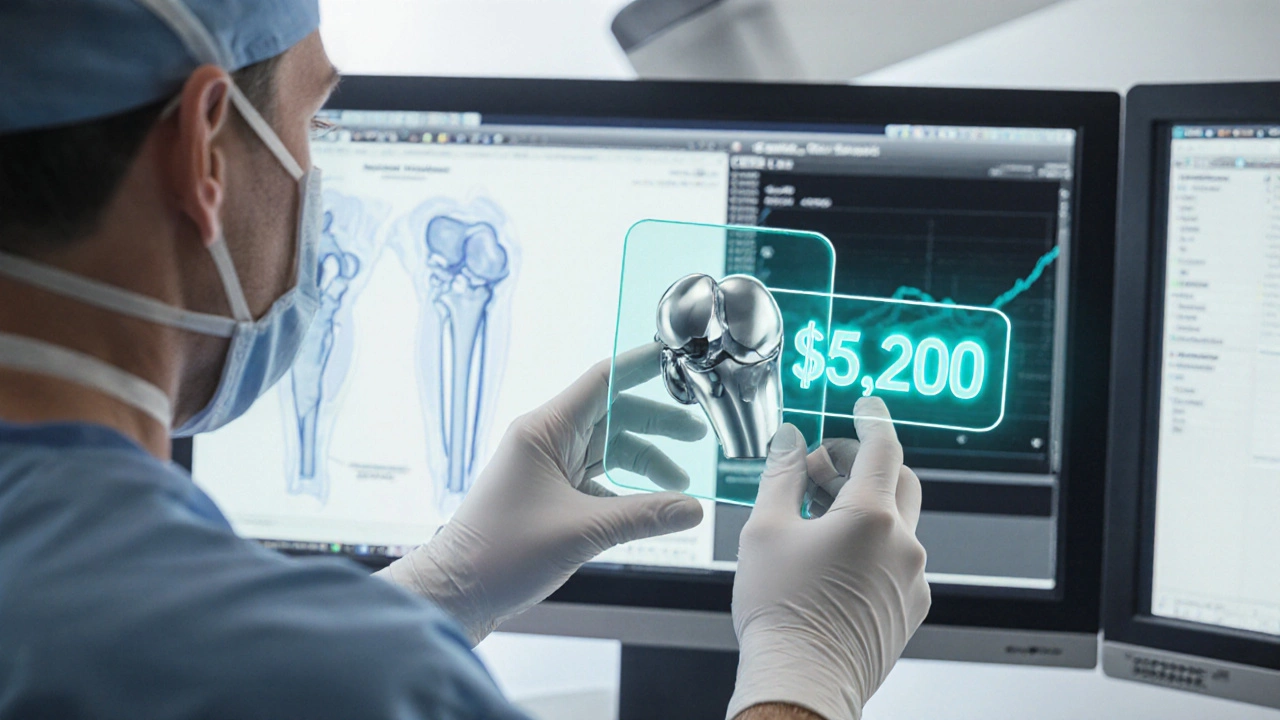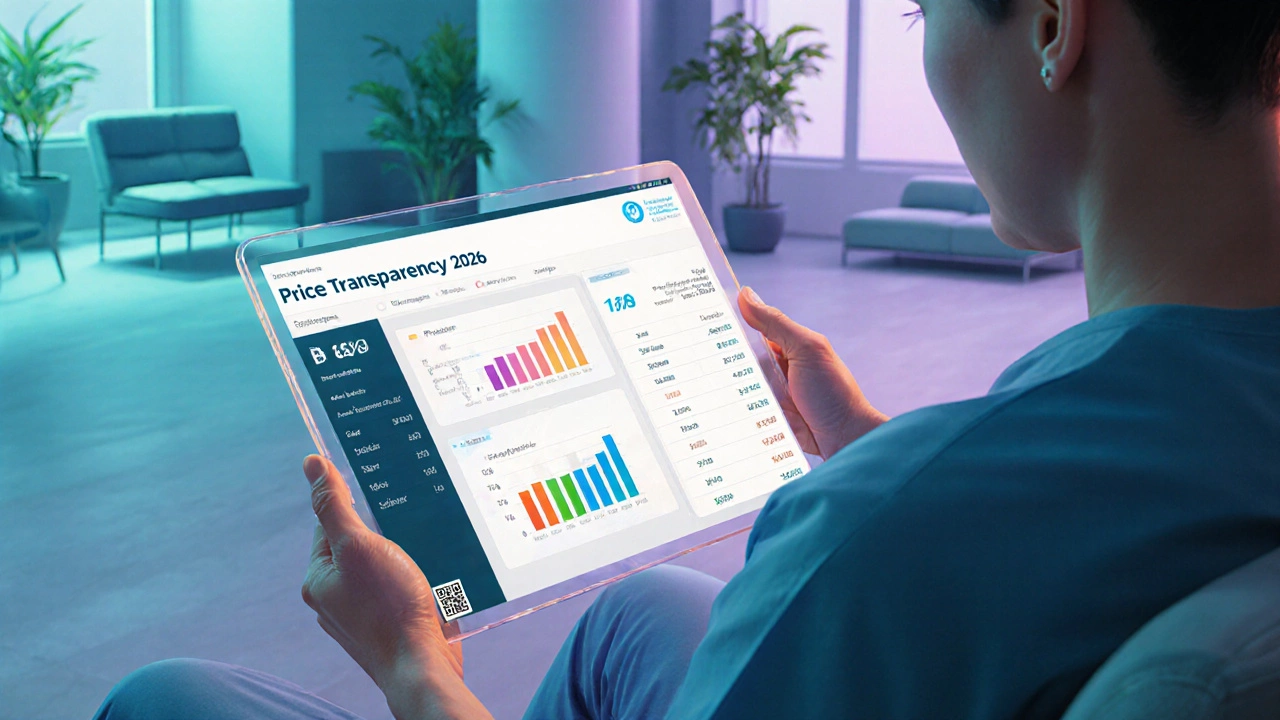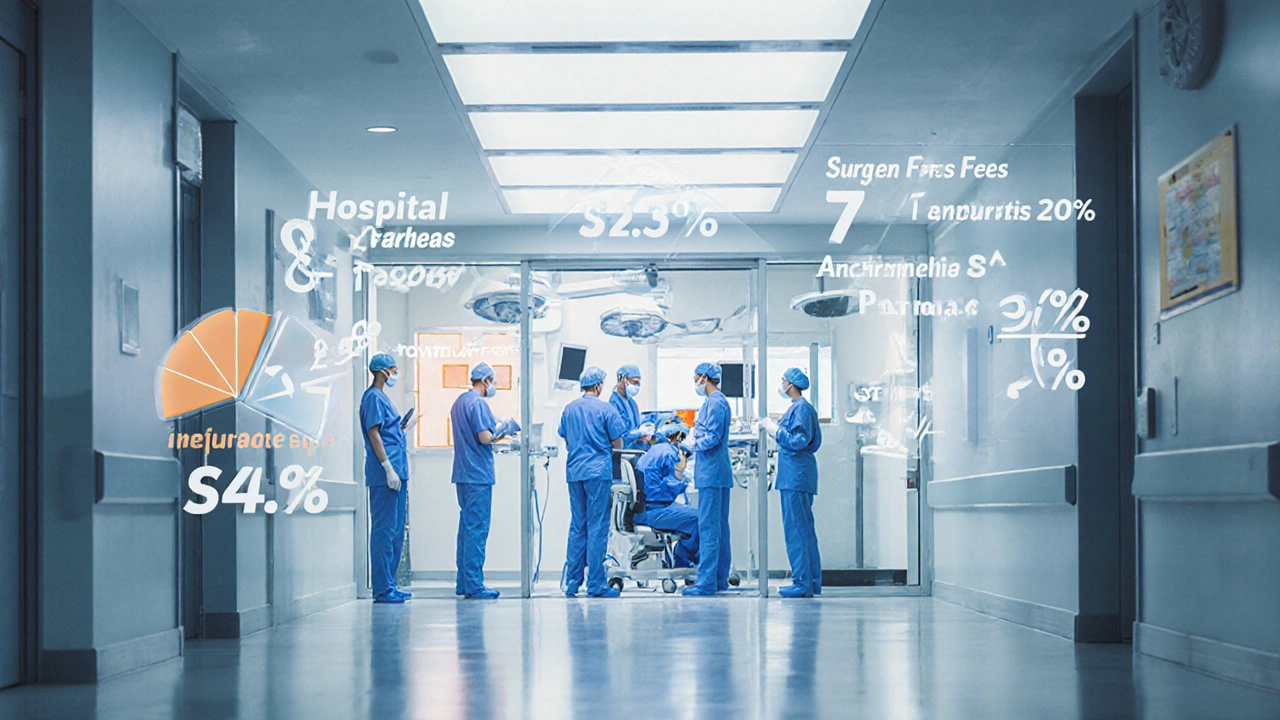Surgery Cost Breakdown Calculator
Estimate Your Surgery Cost
Enter the total estimated cost of your surgery to see how it breaks down into key components.
Cost Breakdown Visualization
Quick Takeaways
- Hospital overhead, surgeon fees, and advanced technology make up the bulk of surgery prices.
- Insurance reimbursements, regional price gaps, and regulatory requirements add hidden layers of cost.
- Knowing where the money goes helps patients negotiate, plan, and look for lower‑cost alternatives.
Ever wondered why a routine knee replacement can run into the tens of thousands while a simple appendectomy feels pricey in comparison? The answer isn’t a single line item. It’s a mix of tangible expenses and less‑obvious factors that stack up inside every operating room. Below we unpack the main cost drivers, show how they interact, and give you practical tips to keep the bill from shocking you.
Medical surgery is a clinical procedure that involves cutting, removing, or repairing tissue to treat disease, injury, or deformity. The cost of a surgery is the sum of many components, each with its own market forces, labor dynamics, and regulatory demands.
1. Hospital Overhead - The Hidden Engine
Running a modern hospital is a massive business. Hospital overhead covers utilities, building maintenance, administrative staff, compliance programs, and IT infrastructure can easily consume 30‑50% of the total charge for a procedure. Why? Think about 24/7 staffing, sterilization labs, and the need for redundant systems that keep patients safe around the clock. The more sophisticated the facility (e.g., a tertiary referral center), the higher the overhead slice.
2. Surgeon Fees - Skill Meets Market
A surgeon’s expertise doesn’t come cheap. Surgeon fees represent the compensation for the operating physician, including pre‑op planning, intra‑op time, and post‑op follow‑up typically range from 10‑20% of the total bill. Highly specialized surgeons-cardiac, neuro, transplant-command premium rates because of years of training, limited supply, and the high stakes of their work.
3. Anesthesia Services - More Than a Numbed Feeling
Most patients think of anesthesia as a single drug, but it’s a whole service. Anesthesia services include the anesthesiologist’s time, monitoring equipment, and drugs needed to keep the patient stable usually add another 5‑10% to the bill. Complex cases may require advanced airway management and intensive monitoring, pushing costs up further.

4. Medical Devices & Implants - The Price of Innovation
When a surgery involves a prosthetic knee, a cardiac stent, or a spinal cage, the medical devices and implants are high‑tech products that often carry hefty price tags due to research, regulation, and limited competition. A single hip implant can cost $4,000‑$6,000 wholesale, and hospitals mark it up significantly to cover inventory risk and vendor contracts.
5. Pharmaceutical Supplies - From Antibiotics to Painkillers
Post‑operative care includes a cocktail of antibiotics, pain medication, and sometimes specialty drugs. Pharmaceutical supplies are billed separately and can account for 3‑7% of total surgery costs. Newer biologic pain relievers, while effective, are markedly more expensive than traditional opioids.
6. Regulatory & Compliance Costs - The Safety Net
Every device, drug, and procedure must meet stringent standards set by agencies like the FDA and NHS. Regulatory compliance requires hospitals to invest in quality‑control staff, documentation systems, and periodic audits. Those expenses flow into the price you see on the statement.
7. Insurance Reimbursement - The Middleman Effect
In many countries, insurers negotiate rates with hospitals. Insurance reimbursement is the amount an insurer agrees to pay for a procedure, often lower than the hospital’s list price. When insurers pay less, hospitals may raise their list price to maintain revenue, a phenomenon called “price anchoring.” For uninsured patients, the list price becomes the final bill.
8. Geographic Price Variation - Location Matters
What you pay for a gallbladder removal in New York can be dramatically different from the same surgery in a Midwest town. Geographic price variation stems from local labor costs, real‑estate prices, and the competitive landscape of hospitals. Wealthier regions often have higher facility fees, while rural areas may offer lower rates but limited specialist access.

9. Out‑of‑Pocket Costs - The Patient’s Share
Even with insurance, patients face deductibles, co‑pays, and sometimes balance‑billing. Out‑of‑pocket costs represent the portion of the total bill the patient is responsible for after insurance contributions. Understanding these components helps patients budget and negotiate financial assistance.
Cost Component Comparison
| Component | Typical % of Total | Example Cost Range (USD) |
|---|---|---|
| Hospital overhead | 30‑45% | $3,000‑$9,000 |
| Surgeon fees | 10‑20% | $1,500‑$4,000 |
| Anesthesia services | 5‑10% | $800‑$1,800 |
| Medical devices / implants | 15‑30% | $2,500‑$7,500 |
| Pharmaceutical supplies | 3‑7% | $300‑$900 |
| Regulatory & compliance | 2‑5% | $200‑$600 |
| Insurance & admin fees | 5‑8% | $500‑$1,200 |
Practical Tips to Tame the Bill
- Request a detailed itemized estimate before surgery. Knowing the exact line items lets you spot unnecessary charges.
- Ask if the hospital offers a cash‑price discount. Many institutions lower the list price for self‑pay patients by 10‑20%.
- Shop around for the same procedure at nearby facilities. Even a 15% price gap can mean thousands saved.
- Check whether a less‑invasive alternative (e.g., arthroscopy vs. open surgery) provides similar outcomes at a fraction of the cost.
- Explore financial assistance programs. Non‑profit hospitals often have sliding‑scale options for low‑income patients.
Future Trends That Could Shift Prices
Technology and policy are constantly reshaping surgery costs. Tele‑pre‑op consultations can cut administrative expenses, while robotic surgery platforms promise precision but bring hefty acquisition fees. Meanwhile, government price‑transparency mandates (coming into full effect in 2026) aim to force hospitals to publish real‑time cost data, giving patients more bargaining power.
Frequently Asked Questions
Why does the same surgery cost different amounts at different hospitals?
Hospital overhead, local labor rates, and the presence of specialized equipment create price gaps. Additionally, each hospital negotiates its own contracts with insurers, leading to varying list prices.
Can insurance lower the out‑of‑pocket amount for a high‑priced surgery?
Yes. High‑deductible plans may cover a larger share once the deductible is met. Some insurers also offer bundled‑payment agreements that cap the total cost for a specific procedure.
What role do medical devices play in inflating surgery bills?
Devices and implants often carry premium prices due to research, patents, and limited competition. Hospitals add handling and markup costs, making them a sizable percentage of the overall charge.
Are there ways to get a discount if I pay cash?
Many hospitals have cash‑price programs that reduce the list price by 10‑20%. It’s worth asking the billing department before you schedule the operation.
How will upcoming price‑transparency laws affect surgery costs?
The new rules require hospitals to publish real‑time, item‑level cost data online. Greater visibility should empower patients to compare offers and push providers toward more competitive pricing.




